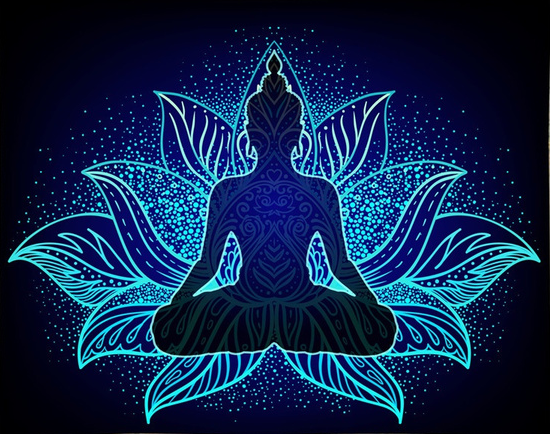Everyone has the potential to become a Buddhist, and become able to view this ever-changing world from a place of inner calmness.
- Consume mindfully.
- Eat with awareness and gratitude.
- Pause before buying and see if breathing is enough.
- Pay attention to the effects of media you consume.
- Pause. Breathe. Listen.
- When you feel compelled to speak in a meeting or conversation, pause.
- …
- Listen with empathy.
- Practice gratitude.
- Do not judge the present moment.
- Be equally grateful for opportunities and challenges.
- Share joy, not negativity.
- Cultivate compassion and loving kindness.
- Notice where help is needed and be quick to help
- Consider others’ perspectives deeply.
- Work for peace at many levels.
- Cultivate Curiosity
- Discover Wisdom
- Find connections between Buddhist teachings and your life.
- Be open to what arises in every moment.
- Accept constant change.
Be aware of what you put into your body, be thankful for the nourishment good food provides. Consider carefully before purchasing material objects. Ask yourself if it’s really something you need. Mindfulness is the practice of being present, of being truly here, now and in this position. It is to be able to discern what is healthy for your organism, whether it is your physical organism or your mental organism, from what is bad for you.
Eating a good meal should have all the senses involved and be really enjoyed. On the plate, we like the way our food looks, the colours, smells, and tastes. Meals should be savoured and enjoyed thoroughly.
A slow, deliberate and inquisitive exploration and interrogation of food from execution, picking up a morsel from the plate, to chewing, all the way to swallowing, is important for attentive, intuitive and aware. We need to eat with mindfulness and gratitude in order to recognise and transform unhealthy mental structures, especially our greed, and learn to eat in moderation.
Discover your internal pause button. Living your life more presently and becoming mindful will result in a natural slowing down. Open your mind up to the art of just being. Learning to press pause means listening and assimilating before opening your mouth. Become a mindful spender and realize that most decisions in life don’t have to be immediate. Relish in the joy of pondering.
Just as you consume food, you consume media. And like food, some media is wholesome and some is unhealthy. Pay attention to the effects of media you consume. How balanced is it? Is there more bad than good? How is it affecting your mental state? What can you do to bring yourself back to a calm state of open awareness?
Breathe before entering your home, place of work, or school. We must first choose to notice what is present before we can become comfortable with its existence. Listen to the people you encounter.
How many times have you said something, only to wish you could take it back moments after the words left your mouth? Consciously choosing when to speak and when to listen is essential for meaningful conversation.
Listen intently, emphatically and without judgement to what others have to say. Listening, absorbing and contemplating leads to enlightenment.
Notice what you have. Be equally grateful for opportunities and challenges. Rejoice in the good fortune of others and your own happiness multiplies. Share joy, not negativity.
Become The Observer and watch with detachment all that is playing out before you. It is neither good nor bad, only what is. First impressions can be misleading. Forgive everything. Love Everything.
“You can’t stop negative thoughts from popping into your head, but you can choose to stop letting them control you and your life.” ~ Lori Deschene
“Love is the absence of judgment.” “Love and compassion are necessities, not luxuries. Without them, humanity cannot survive.” “We can live without religion and meditation, but we cannot survive without human affection.” ~ Dalai Llama
Practicing help and generosity towards others helps train the mind in a way conducive to attaining enlightenment. By giving you eliminate your greed and let go of attachment.
We need to appreciate the differences in perspective and therefore people. By embracing these differences we can better learn ourselves in ways we can’t imagine on our own. From there, we see things differently.
Whether we have global peace or global war is up to us at every moment. The Buddha taught that peaceful minds lead to peaceful speech and peaceful actions. Understand the causes of peace and the causes of war at the deepest possible human level. Understanding the nature of the problem is understanding its solution.
Cultivate curiosity. Be open to what is happening in every moment. To truly embrace an attitude of curiosity means you begin to question things in your life and the world around you with no attachment to the answer. Even if the subject at hand is something you know a lot about pretend you are getting to know it for the very first time and with wonder. Begin to inquire, observe and learn. Being curious about yourself means you get to know yourself again – your strengths, weaknesses, passions, and talents.
To discover Wisdom is to understand the fleeting, impermanent and unreliable nature of everything we experience in our lives. Wisdom opens our minds to the experience of selflessness and compassionate engagement with the world leading eventually to the liberation of Enlightenment. With Wisdom we become better at solving our own problems and the problems of others.
Everything is constantly changing and evolving. What is real is the existing moment, the present that is a product of the past, or a result of previous causes and actions.

